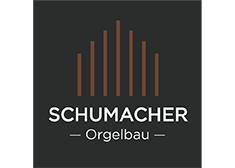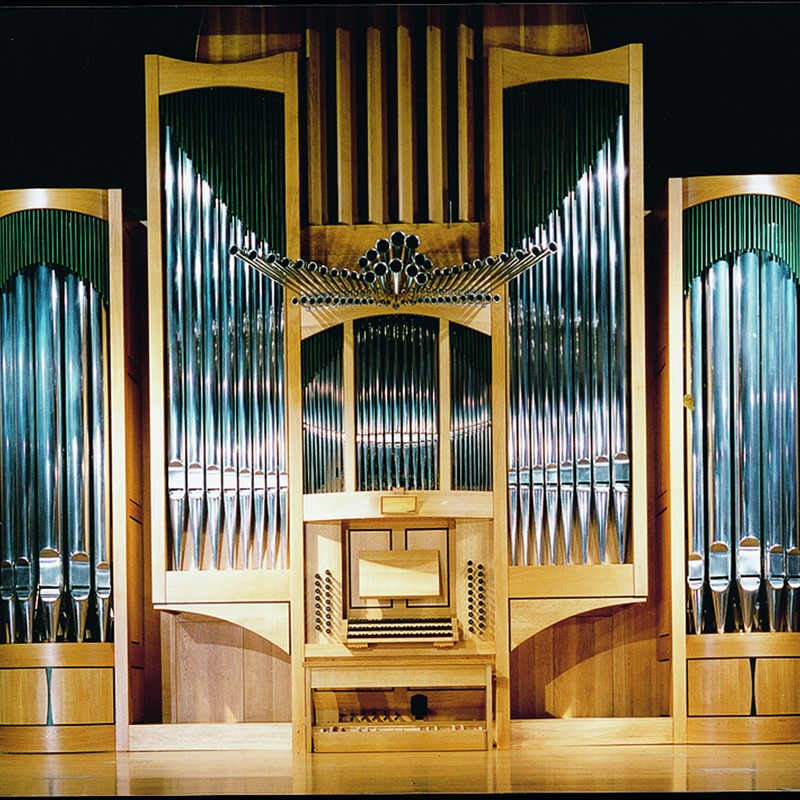Esch-sur-Alzette (L) | Conservatoire
The specification for this organ was jointly drafted by Carlo Hommel, professor for organ and titular organist of the main organ at the Luxembourg cathedral, and by the organbuilder. The choice of the tonal groups as well as the placement of the organ itself was mainly dictated by the teaching and the solo concert use of the instrument.
In fact, the great organ and the positive organ constitute one unit distributed over two keyboards. The great organ has a Plein jeu completed with a trumpet, whereas the Positive organ supplies the necessary stops to complete the Grand Jeu. The Violin 8' is an indispensable stop for the 19th century repertory. The third manual, a romantic Recit, is rich in fundamental 8' registers, flues and reeds.
A brilliant Trompeta Real mounted horizontally crowns the reed chorus.
The pedal section is principally to provide a majestic bass, which at wish can be amplified and brightened through couplers.
The rounded shapes of the organ reflect the date of the construction of the building. The warm hue of the natural oak and the dark green colour of the pipe shades are in perfect harmony with the concert hall decorations.
Stop list
Grand-Orgue
Bourdon 16'
Montre 8'
Flûte à cheminé
Prestant 4'
Doublette 2'
Founiture IV
Trompette 8' basse/haute
Positif / Grand-Orgue
Récit / Grand-orgue
Positif / Grand-Choeur
Bourdon 8'
Violon 8'
Flûte ouverte 4'
Quinte 2 ⅔'
Tierce 1 ⅗'
Cymbale II
Cormorne 8'
Trompeta real 8'
Récit / Positif
Récit
Flûte harmonique 8'
Viole de Gambe 8'
Voix Céleste 8' c°
Principal 4'
Flûte octaviante 4'
Nazard 2 ⅔'
Octavin 2'
Tierce 1 ⅗'
Trompette harmonique 8'
Hautbois 8'
Voix humaine 8'
Tremblant
Pédale
Flûte 16'
Flûte 8'
Soubasse 16'
Flûte bouchée 8'
Bombarde 16'
Trompette 8'
Grand-Orgue / Pédale
Positif / Pédale
Récit / Pédale

